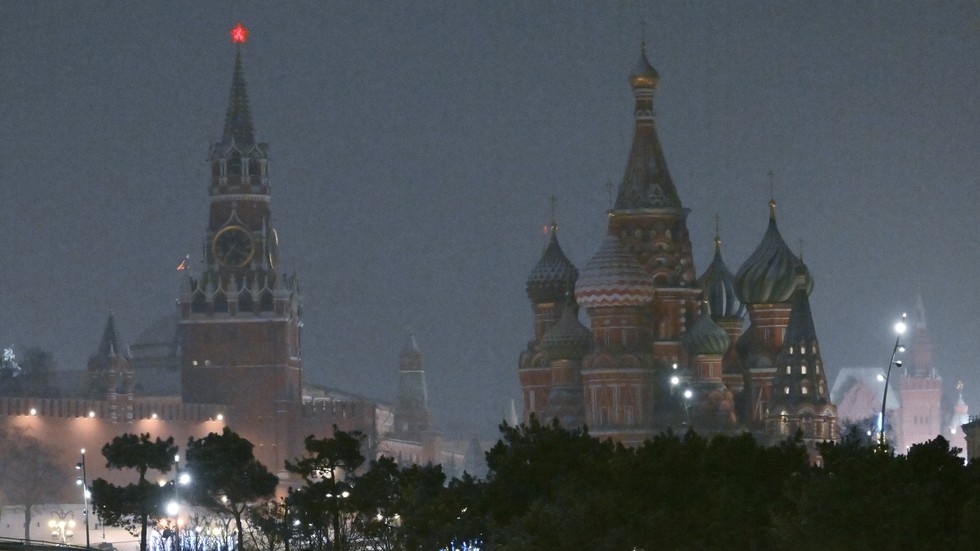Kremlin Offers to Mediate US-Iran Negotiations: A Diplomatic Shift?
As tensions escalate in the Middle East, the Kremlin has recently made headlines by offering to mediate negotiations between the United States and Iran. This proposal marks a significant shift in the diplomatic landscape, with potential implications for regional stability and international relations. In this article, we will explore the motivations behind Russia’s offer, the historical context of US-Iran relations, and the possible outcomes of this unexpected diplomatic initiative.
The Context of US-Iran Relations
To understand the significance of the Kremlin’s offer, one must first examine the complex history of US-Iran relations. Since the 1979 Iranian Revolution, which saw the overthrow of the pro-Western Shah, the relationship has been fraught with tension. The United States has viewed Iran with suspicion, particularly due to its nuclear ambitions and its support for militant groups across the region.
In recent years, the situation escalated with the US withdrawing from the Joint Comprehensive Plan of Action (JCPOA) in 2018, which had aimed to curb Iran’s nuclear program in exchange for sanctions relief. The reimposition of sanctions led to increased hostilities, with both nations engaging in provocations that risked military confrontation.
Kremlin’s Diplomatic Maneuver
The Kremlin’s willingness to mediate US-Iran negotiations can be seen as a strategic move to position Russia as a key player in Middle Eastern geopolitics. Russia has long sought to expand its influence in the region, and by stepping into the role of mediator, it could enhance its diplomatic standing globally.
- Geopolitical Strategy: By facilitating dialogue, Russia aims to assert itself as a crucial broker in international conflicts.
- Regional Influence: The Kremlin’s involvement could help strengthen ties with Iran, a significant partner in its efforts to counter US influence in the Middle East.
- Global Image: A successful mediation could enhance Russia’s image as a peacekeeper, contrasting with the US’s more interventionist approach.
Potential Benefits of Mediation
The Kremlin’s offer to mediate could yield several benefits for all parties involved, including:
- De-escalation of Tensions: A mediated negotiation could help reduce tensions between the US and Iran, potentially preventing military conflict.
- Broader Regional Stability: Improved relations between the US and Iran might have a ripple effect, leading to better security dynamics in the Gulf region.
- Diverse Perspectives: Russia’s involvement could introduce alternative viewpoints that might lead to innovative solutions to longstanding issues.
The Challenges Ahead
While the Kremlin’s offer is promising, several challenges must be addressed to make mediation successful. These include:
- Lack of Trust: Historical grievances and mutual distrust between the US and Iran could hinder genuine dialogue.
- Domestic Pressures: Both nations face internal pressures that may complicate their willingness to compromise.
- Third-Party Interests: Other regional players, such as Saudi Arabia and Israel, may resist any agreement that they perceive as detrimental to their interests.
The Role of Other Actors
The success of any negotiations facilitated by the Kremlin will likely depend on the involvement of other key players. The European Union, for instance, has been keen to restore the JCPOA framework and might welcome Russian mediation as a means to revive talks.
Moreover, countries like China, which have maintained a relatively cooperative relationship with Iran, could also play a role in supporting mediation efforts. Their involvement might balance the power dynamics and contribute to a more comprehensive approach to resolving tensions.
Looking Forward: A New Diplomatic Era?
The Kremlin’s offer to mediate US-Iran negotiations could signify a potential shift in the diplomatic landscape of the Middle East. If successful, it might pave the way for a new era of dialogue and cooperation. However, the road ahead is fraught with obstacles that must be navigated carefully.
For the Kremlin, this is an opportunity to leverage its influence while promoting stability in a region that has long been characterized by conflict. For the US and Iran, engaging in dialogue could lead to a better understanding of each other’s positions and possibly result in de-escalation of ongoing tensions.
Conclusion
The Kremlin’s proposal to mediate US-Iran negotiations is a bold diplomatic initiative that could reshape the dynamics of the Middle East. While the challenges are significant, the potential benefits of reduced tensions and improved relations could be transformative. As the situation unfolds, the international community will be closely watching how this diplomatic endeavor progresses and what it could mean for the future of US-Iran relations and regional stability.
In this evolving geopolitical landscape, fostering dialogue and understanding has never been more crucial. The Kremlin’s role as a mediator could be a pivotal step toward achieving lasting peace in a region that has long been plagued by conflict.
See more BBC Express News

